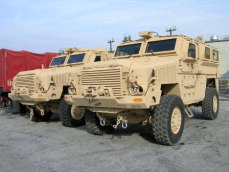SAN FRANCISCO, Sept. 14, 2011 — Asia-Pacific defense cooperation and cybersecurity will be among the topics on the table at the annual U.S.-Australia Ministerial Consultations here this week, Defense Secretary Leon E. Panetta said today.
Secretary of State Hillary Rodham Clinton and Panetta will meet with their Australian counterparts to discuss area of mutual interest and to celebrate the 60th anniversary of the ANZUS Treay, signed in 1951 by Australia, New Zealand and the United States.
Meeting with reporters traveling here with him aboard an Air Force jet, Panetta said he worked very closely with the Australians in a number of areas when he served as CIA director.
“They were very good partners,” he added, “and so in this capacity, I look forward to that same kind of relationship.”
Panetta will join Clinton, Australian Foreign Minister Kevin Rudd and Defense Minister Stephen Smith for an official dinner tonight. Tomorrow, the leaders will hold consultations at the Presidio, where the ANZUS treaty was signed 60 years ago this month.
At the invitation of Prime Minister Julia Gillard, President Barack Obama will commemorate the 60th anniversary of the ANZUS alliance by visiting Australia in mid-November.
Panetta said he’s looking forward to the ministerial meeting, known as AUSMIN. “We’ll be discussing how we can strengthen our partnership for the future, particularly in the Asia-Pacific area,” he added.
A senior defense official told reporters yesterday in a background briefing that the leaders also will discuss the evolving Asia-Pacific strategic environment, Afghanistan and Pakistan and mutual efforts there, and recent events in the Middle East, “to make sure that we’re coordinating our assistance and our support to encourage the democratic transitions taking place there.”
A range of short- and long-term alliance issues also will be discussed, the official said, and the two nations will release a joint statement stating that the ANZUS Treaty specifically applies to cyberspace.
Panetta said the focus on cyberspace “is in large measure a recognition … that cyber is the battlefield of the future, and that we are all going to have to work very hard not only to defend against cyber attacks, but to be aggressive with regard to cyber attacks as well.”
The best way to accomplish that, the secretary said, “is not only on our own, but working with our partners.”
Other alliance topics include space cooperation, cooperation on U.S. missile defense programs, and progress made by the Bilateral Force Posture Working Group established last year at the AUSMIN consultations in Melbourne.
Working group discussions will focus on “a range of options,” he said, including increasing U.S. access to Australian training, exercise and test ranges; potential pre-positioning of U.S. equipment in Australia; greater use by the United States of Australian facilities and ports; and options for joint activities in the region.
The Australians “are probably our best partners in terms of the Asian-Pacific area,” the secretary said. “We look forward to not only a good conference, but [also to] strengthening that relationship for the future.”
Source:
U.S. Department of Defense
Office of the Assistant Secretary of Defense (Public Affairs)

 von
von 